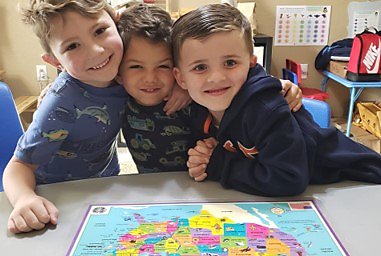Dr. Teresa Sanders loves teaching. But she realized in her first year as a public school teacher that the system doesn’t work—especially for children with special needs. She dreamed of starting her own school one day.
“I started writing my vision for my school more than a decade ago,” she says. Her vision involved a wholistic, comprehensive school that worked closely with families. She would focus on children with behavioral problems who are not served well by public schools.
Dr. Sanders opened Safari Small Schools on March 1, 2020—right as COVID-19 was beginning to disrupt education. With all the uncertainty and chaos, she didn’t get her first student until the following February. But she was patient. She knew the students who were meant to be with her would find her.
To ensure each child gets the right amount of attention, Safari is a “micro-school” that is capped at five students. Dr. Sanders is also very careful about the mix of students she accepts. She makes sure the parents are on the same page and that the child will mix well with her other students. She currently has three students, and she’s thrilled with their progress—in terms of behavior and academics.
Safari Small Schools meets in a spare room in Dr. Sanders’ home while she converts another building on the property into a school house. The renovation process has become another learning experience for the children as they get to see the construction equipment and materials when they arrive.
Dr. Sanders knows other teachers who are frustrated by the bureaucracy and lack of flexibility in public schools. She hopes more will start micro-schools—which could be targeted to special needs, like dyslexia or autism, or interests, such as art or science. If funding followed students, she thinks more opportunities like her school would be available for students.
Now more than ever, families are re-evaluating their children’s educational needs. And polling shows many parents and teachers support education choice programs to enable more children to attend schools beyond their assigned district school. When funding follows students, all families—regardless of income, race, or ZIP code—will be able to choose the educational options that work for them.
Judging by the smiles on her students’ faces and the rave reviews from their parents, it’s clear Safari Small Schools is a micro-school that’s accomplishing big things.


